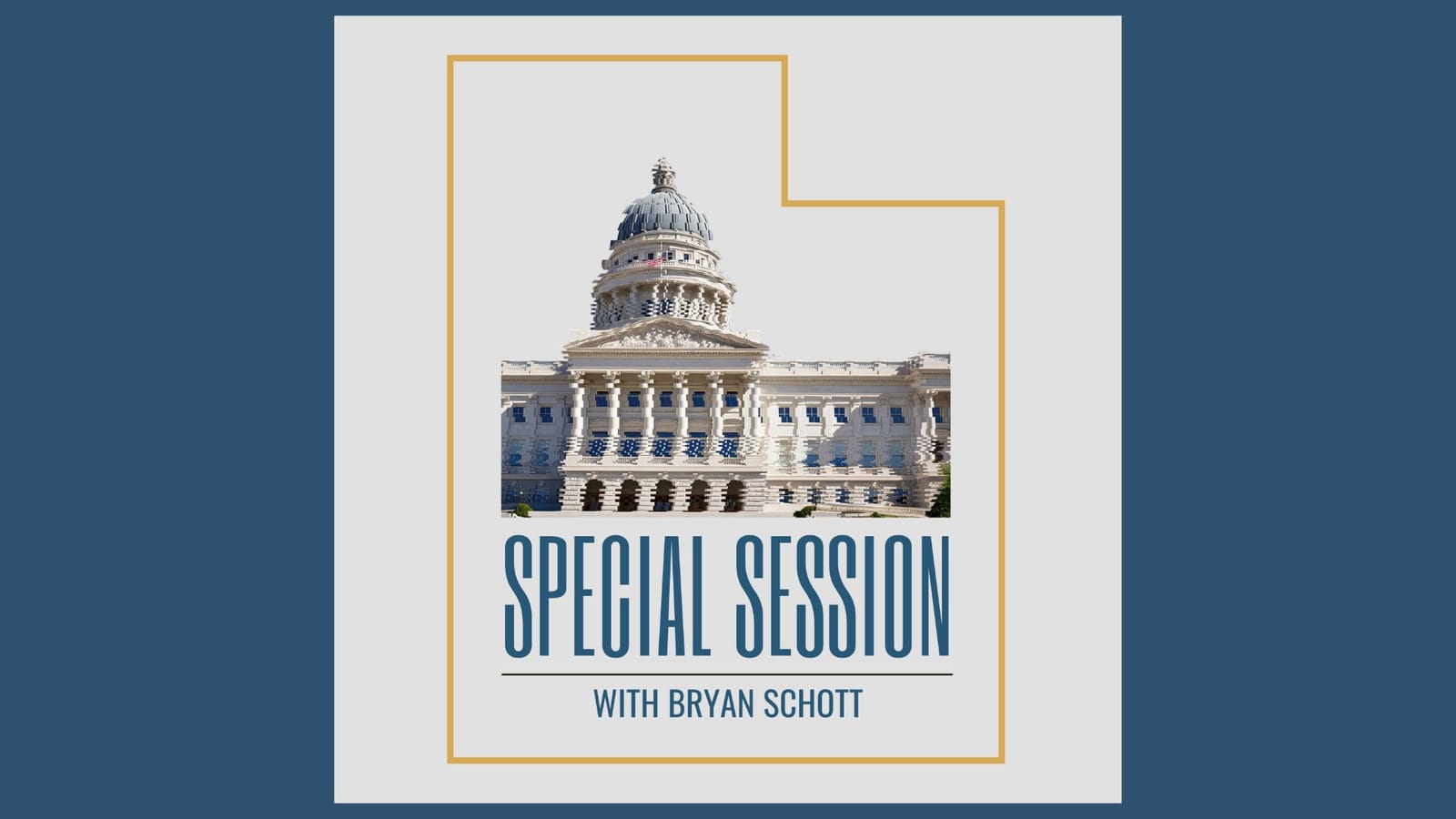The race for Utah Republican Party chairman has become a reflection of broader tensions within the GOP as incumbent Rob Axson seeks to become the party’s first multi-term leader since James Evans (2013-2017). After running unopposed two years ago, Axson now faces a challenge from former Rep. Phil Lyman, who lost a bitter and contentious gubernatorial primary to incumbent Spencer Cox last year.
At Monday night's Washington County Republican Women's debate, the two candidates demonstrated stark stylistic differences despite sharing similar policy positions. Axson, a former top staffer for Sen. Mike Lee, advocated for working within existing political structures. In contrast, Lyman pushed for a more aggressive approach, urging the party to leverage its position as Utah's dominant political force.
CAUCUS AND CONVENTION SYSTEM
The debate highlighted both candidates' strong support for Utah's caucus system - where neighborhood meetings elect delegates who then choose candidates at conventions. That stance just happens to align with their immediate interests, as these same delegates will select the next party chair at the May 17 convention.
The candidates sharply criticized SB54, the 2014 law that created an alternative path to the ballot through signature gathering, effectively diluting the power of the caucus-convention system.
“I truly believe that this system of government, in spite of the attack that came 10 years ago from our legislature and is trying to hinder this process. We can overcome that by continually and sincerely working together,” Axson said.
“Our will at the convention was completely overridden by SB54,” Lyman added. “The whole purpose was to do an end run around our system.”
The issue has been Lyman’s bête noire for the last year. In his recent gubernatorial bid, he abandoned signature gathering after failing to collect enough names, then successfully focused on winning convention delegates. Despite defeating Cox at the convention, Lyman still faced a primary because Cox had qualified through signatures.
Since his primary loss, Lyman has waged an unsuccessful campaign to challenge Cox's signature qualification. Despite a legislative audit finding no irregularities, Lyman continues to claim fraud without evidence. His repeated demands to access Cox's signature packets and election data have been denied under Utah law, which protects voter privacy.
"We can't even look at the signatures, our own voter rolls, or the results of our own primary election," Lyman said during the debate, his frustration evident. "Who's going to stand up and check those signatures? Is the party going to step forward and say this is our Republican primary?"
The two differ sharply on how to address SB54’s requirements. While both support repealing the law, their approaches reveal contrasting styles. Axson favors using legislative channels, while Lyman advocates for direct confrontation.
“We don’t have to go and conform to anything. It’s still our party,” Lyman insisted, despite state law requiring parties to allow signature gathering to maintain their “qualified” status. Parties that reject this requirement become "registered" parties - ironically forcing their candidates to use only signature gathering to reach the ballot.
Lyman's solution veered into unexpected territory.
“If the state’s going to take that away, if the legislature, if the lieutenant governor is going to try to take that away, we should start looking to the federal government, to (Attorney General) Pam Bondi or (FBI Director) Kash Patel or somebody to say something is happening in Utah that is not right,” Lyman said.
Axson distanced himself from this approach. While supporting SB54's repeal, he rejected confrontation with state authorities.
“Any type of inference that I am not committed to this system and have not done everything in my power to fight for the repeal of SB54 and strengthening the caucus and convention system is not accurate. Am I willing to push back against the governor? Yes, I am. Have I done it? Yes, I have. Am I willing to break the law? No, I’m not,” Axson said. “If you want someone who’s going to break the law, I’m not your guy.”
“I’m not saying Phil is going to break the law,” Axson quickly added. “I’m just saying that’s not me. I’m not going to do that because it’s my reputation and it’s your reputation as Republicans.”
One of the more troubling exchanges on Monday night centered around the party’s relationship to the judiciary.
Last summer, Republicans were infuriated when the Utah Supreme Court put the state’s near-total ban on abortion on hold until a lower court can decide whether it’s constitutional.
Since then, courts have ruled against lawmakers on proposed constitutional amendments, school vouchers, transgender girls competing in high school sports, gerrymandering and their ability to override citizen approved ballot initiatives.
Both Axson and Lyman said the Utah GOP should play a larger role, helping to rein in what they see as judicial activism.
“There is a tremendous vulnerability that we have as a state right now that we have to be prepared for. The party plays an important role and needs to continue to play an important role in pushing back against the judicial activism that we’re seeing here in Utah,” Axson said.
Axson said he was particularly pleased that lawmakers removed the Utah Bar Association from being the “gatekeeper” on how judges are nominated.
“Regardless who the governor was, you had this very liberal organization approving the list, then you’re picking from a list that met their approval. I don’t want the Bar Association’s approval. I want the approval of the people who have the majority vote here in Utah,” Axson said.
Again, Lyman suggested the Utah GOP take a much more confrontational approach when it comes to checking the judiciary.
“The Republican Party is the 800 pound gorilla in Utah, and we don’t flex our muscle. (The Legislature) acts like they’re the subjects of the courts. I’m not about breaking laws, and I don’t break laws, but I do challenge laws that need to be challenged,” Lyman said.
Lyman rose to fame in 2014 when he was convicted and served jail time for organizing an illegal ATV protest ride in Recapture Canyon. He was pardoned by President Donald Trump in December 2020.
“We (the Republican Party) should stand up and say we’re not going to put up with this. We’re not going to sit by while a judge overrides our abortion ban and 6,000 babies are killed in the meantime. There’s no way the party can justify having taken a passive approach to that. We are the 800 pound gorilla. We should flex our muscle, and I think we do it far too little,” Lyman said.





